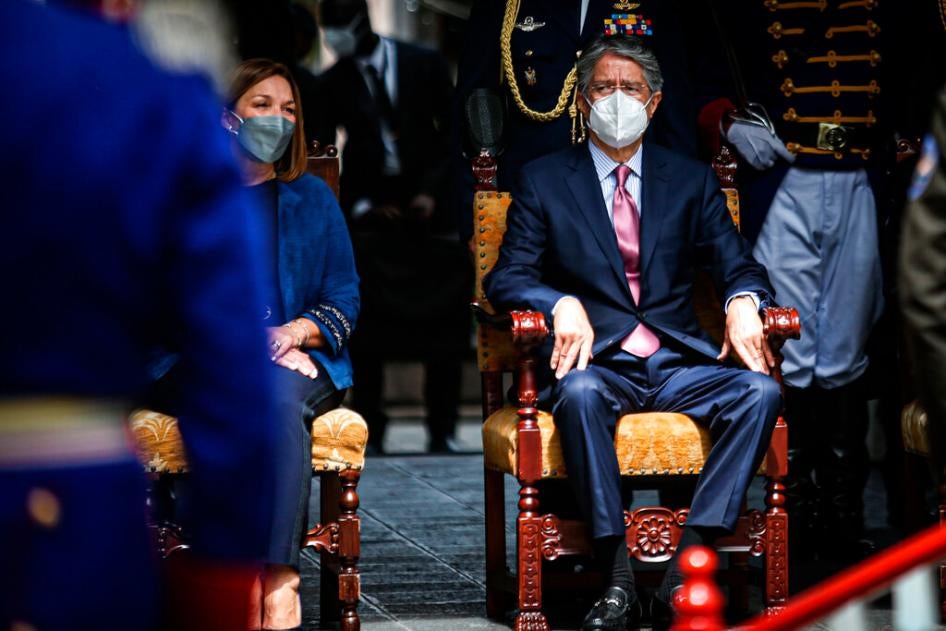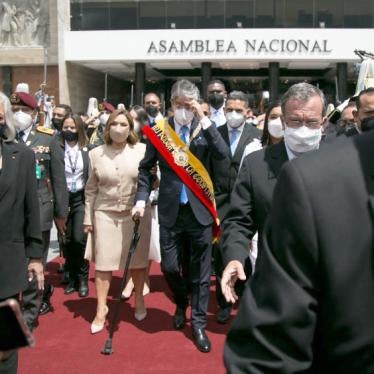Ecuador’s President Guillermo Lasso has until June 10, 2021 to act on the recently-passed Law to Prevent Violence, Digital Harassment, and Violation of Privacy. The law addresses important issues regarding gender-based violence and violence against children but contains provisions that would severely undermine free speech in Ecuador. President Lasso should veto these provisions.
The law was approved in a rush vote on May 6 by a majority of the outgoing members of Ecuador’s National Assembly. It was proposed to address online gender-based violence, but as drafted, the law could end up silencing survivors of sexual violence from speaking up online.
Violence against women and girls in digital environments is a pressing human rights issue and governments have a human rights obligation to address it. But doing so does not require severely restricting the ability of journalists, digital rights activists, whistleblowers, and ordinary citizens to document and expose misconduct and human rights violations such as corruption and gender-based violence.
One problematic provision of the law imposes criminal penalties from one to three years in prison on anyone who reveals or disseminates audio, video, photos, or other digital content considered to involve “secret” or personal information without the subject’s consent. The provision goes beyond existing provisions in Ecuador’s Criminal Code concerning disclosures of secret information and contains no exceptions to allow for the exposure of information that is in the public interest. As a result, it threatens journalism and public accountability.
The new law also broadens the definition of criminal defamation, providing that it can be committed “through any of the information and communication technologies.” Criminal defamation laws are disproportionate and unnecessary to address reputational harms, and Ecuador should be abolishing, not expanding its own.
One of Lasso’s first actions as president was to introduce a new bill aimed at undoing the severe damage to free speech generated by former President Rafael Correa during his decade in power. Vetoing harmful provisions from the Digital Violence Law would be consistent with the international human rights standards that his office cited in his bill. It would also allow him to acknowledge the importance of preventing digital violence while sending a critically important message about his commitment to restoring freedom of expression and independent journalism in Ecuador.









